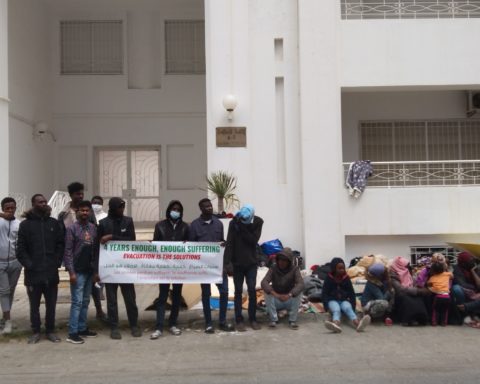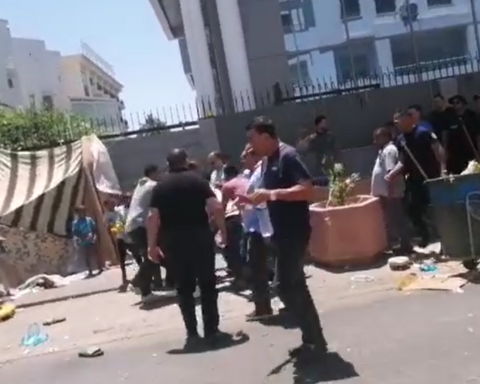Bihač is a charming Bosnian tourist town on the border with Croatia, with 60 thousand inhabitants and streams of clear water everywhere. Migrants are secluded right in the first suburb, visible only when they walk around the area. They stationed in a large industrial warehouse, the Bira Camp, and in an abandoned and decadent complex, in dangerous conditions. This building has become a shelter for over 300 people who, on several occasions, have attempted to cross the border to enter Croatia to try to leave the Balkans.

In the institutional camp (Bira) there are living more than 2,000 migrants, mostly from Afghanistan and Pakistan, who – as they told us – live crowded in dirty and foul-smelling containers. The camp, managed by the OIM, aims at maintaining the status quo as if it were normal but in no way does it serve to counter the violence inflicted Croatian Police.
The adjacent complex, a “shelter” for hundreds of migrants, is the symbol of how European policies are unsuccessful and aimed at distributing millions of euros without a forward-looking criterion and strategy. Humanity stops there, among rubble and unsafe walls, garbage, stench of burnt plastic, people who are looking for a way out after a life of suffering, dangers, struggles.
In front of this situation we remain stunned and we still don’t know what to do. It’s a page we never wanted to write.
Young people from Afghanistan and Pakistan, some of them minors, live in terrible conditions, breathing in the smoke of anything they can burn to make a fire, with their feet suffering by chilblains, filled with the energy of an eighteen-year-old, yet incredibly hopeful and tenacious to be able to cross another cursed border.
K. says he was forced to escape from Kashmir, a disputed territory between India and Pakistan, scene of a silent conflict. “I had a comfortable life,” he explains, “but I had to get away from the country to preserve my safety and now I find myself living in inhuman conditions, suffering violence and torture and despised by the local population. Maybe they think we are stacked here for committing who knows what crime, that we are robbers or terrorists “, he stops, his voice is broken, takes breath for a few seconds, he breathes again and resumes “but we are not terrorists, many of us escape from wars; we only dream of being able to reach a safe place where we can live a dignified life and rejoin our families“.

There are those who want to reach Austria, those who have relatives in Germany, those who have a friend in Italy. They know that the journey could be long, full of obstacles, dangers and costly. As they have already made clear that they can only count on their own strength and on the help of someone in the name of solidarity and fundamental rights, the ones that are so praised by the European Union but simply do not exist here.
Video by Angela Disanto and Matilde Ramini.



















